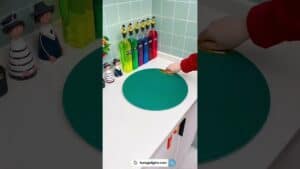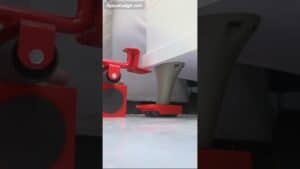Are you worried about potential water leaks in your home causing costly damage? With smart water leak detectors, you can have peace of mind knowing that your property is protected. These innovative devices can detect leaks and alert you to their presence, allowing you to take quick action and prevent serious damage to your home. By following these simple steps, you can learn how to effectively use smart water leak detectors to safeguard your property against water damage.
Key Takeaways:
- Early detection: Smart water leak detectors can provide early detection of water leaks, helping to prevent costly water damage.
- Remote monitoring: These devices allow homeowners to monitor their properties for water leaks even when they are not at home, providing peace of mind.
- Automatic shut-off: Some smart water leak detectors are equipped with automatic shut-off valves, which can help to limit the extent of potential water damage in the event of a leak.
- Integration with smart home systems: Many smart water leak detectors can be integrated with existing smart home systems, allowing for seamless monitoring and control.
- Cost-effective solution: While initial investment cost may be higher, smart water leak detectors can ultimately save homeowners money by preventing costly water damage repairs.
How to Choose the Right Smart Water Leak Detector
When it comes to selecting a smart water leak detector for your home, it’s essential to consider several factors to ensure you make the right choice. The right detector can give you peace of mind and help you effectively prevent water damage in your home.
Key Factors to Consider
When choosing a smart water leak detector, there are several key factors you should consider:
- Compatibility: Ensure that the detector is compatible with your existing smart home system.
- Accuracy: Look for a detector that offers precise and real-time monitoring of water leaks.
- Alert System: Choose a detector that provides instant alerts to your smartphone or other devices.
- Battery Life: Consider the battery life of the detector to ensure it will function effectively over time.
Recognizing the importance of these factors will guide you in choosing the most suitable smart water leak detector for your home.
Tips for Assessing Your Needs
Assessing your specific needs is crucial in selecting the right smart water leak detector. Consider the following tips:
- Size of your property: Determine how many detectors you need based on the size of your home and the areas you want to monitor.
- Water appliances: Take into account the number and type of water appliances in your home to identify potential areas of risk.
- Installation: Consider whether you need a DIY installation or professional installation for the detector.
After assessing your needs based on these tips, you’ll be better equipped to choose a smart water leak detector that meets your specific requirements.
Installation Guide for Smart Water Leak Detectors
When setting up a smart water leak detector in your home, it’s crucial to follow the manufacturer’s guidelines to ensure proper functionality. These devices can be a valuable asset in preventing water damage, and the correct installation is key to their effectiveness. To start, read this article on 4 Smart Home Leak Detection Devices to Help Avoid Water Damage for some options to consider.
Step-by-Step Installation Process
When installing a smart water leak detector, it’s important to carefully follow the step-by-step instructions provided by the manufacturer. To assist you in the process, here is a breakdown of the typical installation process:
| Step | Description |
| 1 | Identify the best location for your water leak detector. Typically, this will be in areas prone to leaks or flooding, such as near water heaters, under sinks, or in the basement. |
| 2 | Ensure that the detector is within range of your home’s Wi-Fi network to enable real-time alerts and notifications. |
| 3 | Follow the manufacturer’s instructions to connect the device to your smartphone or home automation system for remote monitoring and control. |
| 4 | Test the detector to confirm that it is functioning correctly and is able to detect water leaks effectively. |
Troubleshooting Common Issues
If you encounter any issues during the installation or operation of your smart water leak detector, there are a few common troubleshooting steps you can take. These may include ensuring that the device is properly connected to your Wi-Fi network, checking the battery level, or adjusting the sensitivity of the sensor. If problems persist, refer to the manufacturer’s troubleshooting guide or contact their customer support for further assistance.
How to Integrate Smart Detectors with Home Automation
Integrating your smart water leak detectors with your home automation system can provide you with more control and peace of mind. By connecting your detectors to your smart home network, you can receive instant alerts and take immediate action to prevent water damage in your property. If you are wondering How Do Smart Water Leak Detectors Work?, integrating them with your home automation system is a major part of the answer.
Enhancing Leak Detection Through Integration
By integrating your smart water leak detectors with your home automation system, you can enhance the level of protection for your property. With this integration, you can receive instant notifications on your smartphone or other devices if any leaks are detected, allowing you to act swiftly and prevent further damage. This seamless integration ensures that you have complete control over your home’s water safety, giving you peace of mind and security.
Tips for Seamless Connectivity
To ensure seamless connectivity between your smart water leak detectors and home automation system, there are a few tips you should keep in mind. Firstly, make sure that all your devices are compatible and use the same communication protocols. Secondly, position your smart detectors strategically throughout your property to maximise coverage and improve the accuracy of leak detection. Finally, regularly test the connectivity and functionality of your devices to guarantee that they are always ready to protect your home. The use of compatible devices and strategic placement is crucial in maintaining a robust and reliable home automation system. The tips mentioned can make all the difference in providing you with continuous protection and peace of mind. The key to successful integration is ensuring that your devices are always ready and working flawlessly.
Maintenance and Best Practices
When it comes to using smart water leak detectors to prevent water damage, regular maintenance and best practices are crucial. By taking proactive steps to maintain and maximise the effectiveness of your detectors, you can ensure that your home or business is protected from the devastating effects of water damage.
Regular Maintenance Tips
Regular maintenance of your smart water leak detectors is essential to ensure they are functioning optimally. Here are some key tips to keep in mind:
- Check the batteries in your detectors regularly to ensure they are working properly.
- Test your detectors on a monthly basis to make sure they are operational.
- Keep the area around your detectors clean and free from obstructions to allow for proper detection of leaks.
- Replace your detectors according to the manufacturer’s guidelines to ensure they are providing the best protection.
Though regular maintenance may seem like a simple task, it can make a significant difference in the effectiveness of your smart water leak detectors.
Maximising the Lifespan and Effectiveness of Your Detectors
To maximise the lifespan and effectiveness of your detectors, you should ensure that they are installed in the optimal locations within your home or business. Additionally, regular testing and calibration will help to maintain their accuracy. Keep in mind that by following the manufacturer’s recommendations for care and maintenance, you can significantly extend the lifespan of your detectors and better protect your property against water damage.
Summing up: How to Use Smart Water Leak Detectors to Prevent Water Damage
By implementing smart water leak detectors in your home, you can effectively prevent water damage and avoid the costly repairs and inconveniences that come with it. By placing these detectors in key areas such as under sinks, behind appliances, and near water heaters, you can be alerted to potential leaks before they escalate into major issues. Additionally, the ability to receive real-time alerts on your smartphone means that you can take swift action to address any leaks, even when you’re away from home. By utilising this technology, you are taking a proactive approach to protecting your property and ensuring peace of mind.
FAQ
Q: Why should I use Smart Water Leak Detectors?
A: Smart Water Leak Detectors are a proactive and reliable way to prevent water damage in your home. They provide early detection of leaks, allowing you to take action before a small leak becomes a costly disaster.
Q: How do Smart Water Leak Detectors work?
A: Smart Water Leak Detectors use sensors to monitor moisture levels in your home. When a leak is detected, they send an alert to your smartphone, allowing you to address the issue immediately.
Q: Where should I place Smart Water Leak Detectors in my home?
A: Smart Water Leak Detectors should be placed in areas prone to leaks, such as under sinks, near water heaters, and around the foundation of your home. It’s important to also place them in areas where water damage can go unnoticed, such as basements and crawl spaces.
Q: Are Smart Water Leak Detectors easy to install?
A: Yes, Smart Water Leak Detectors are designed for easy installation. Most models simply require placement in the desired location and connection to your smartphone via an app.
Q: Can Smart Water Leak Detectors help me save on insurance costs?
A: Some insurance companies offer discounts for homeowners who use Smart Water Leak Detectors. By proactively preventing water damage, you may be eligible for reduced insurance premiums. It’s advisable to check with your insurance provider for specific details.








